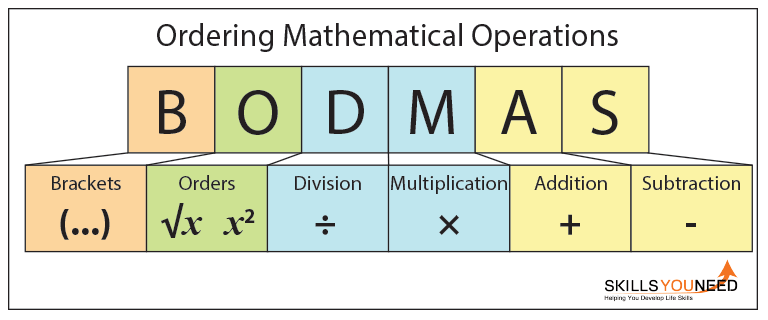Monthly trending articles on ConnectClue
KRMU's BCA (AI & Data Science): Key Highlights
1. Industry-aligned curriculum
2. Certification through IBM & Microsoft
-
Students get access to IBM Lab resources and projects, enabling hands-on exposure to real AI/ML workflows.
-
Microsoft certification paths such as Azure AI Engineer and Data Scientist Associate are integrated, giving students credentials that are recognized globally.
3. MakerSpace & Hands-on culture
4. Strong industry ties & high placement potential
5. Structured internships & credit weightage
6. State-of-the-art labs & infrastructure
Eligibility, Duration & Fees
-
Duration: 3 years (divided into six semesters)
-
Eligibility: Minimum 50% in 10+2 (any stream) from a recognized board
-
Programme Fee: ₹1,65,000 per year
-
Admission Process: It involves:
-
Application
-
Payment of application fee (₹1,000)
-
KRMU?s entrance test (KREE)
-
Personal interview
-
Issuance of offer letter and enrollment
Curriculum & Semester-wise Breakdown
Semester 1 & 2
-
Mathematics for Modern Computing
-
Problem Solving using Python
-
Data Visualization with Power BI
-
Foundations of Web Development
-
Computer Science Basics, etc.
Semester 3 & 4
-
Algorithm Analysis & Design
-
Specialization Course I: Foundations of Practical Data Science
-
Specialization Course II: Applied Statistics
-
Object-Oriented Programming in Java
-
Back-End Web Development
-
Summer Internship I
Semester 5 & 6
-
Operating Systems
-
Machine Learning Fundamentals
-
Big Data Analytics & Cloud-Based Processing
-
Generative Models & their Applications
-
Mobile Application Development
-
Agile Software Engineering
-
Minor Projects and a second summer internship
-
Comprehensive placement preparation modules
Labs & Facilities: Where Theory Meets Practice
-
AI & Machine Learning Lab: Core environment for experimenting with algorithms, neural networks, and model deployment
-
IoT & Embedded Systems Lab: For building connected devices, sensor networks, and real-world systems
-
Advanced iOS Lab: Enables mobile app development on macOS and iOS platforms
-
Robotics & Automation Lab: To prototype autonomous systems and robotic modules
-
MakerSpace: Provides flexible workspace and tools such as 3D printers, laser cutters, electronics kits, etc.
Student Life, Beyond Academics
-
Hackathons, coding competitions, and startup challenges
-
Workshops, guest lectures, and seminars by industry leaders
-
Research initiatives and innovation cells
-
International exposure via competitions, academic exchanges, and collaborations
-
A supportive ecosystem of faculty, mentors, and peer networks
Career Pathways & Roles After Graduation
-
AI & Data Science Developer: Build intelligent applications and tools powered by data
-
Machine Learning Engineer: Design, test, and deploy ML models
-
Data Analyst / Business Intelligence Developer: Clean, visualize, and interpret data to support business decisions
-
AI Research Scientist: Carry out experiments and innovations in AI theory and application
-
Cloud & Big Data Engineer: Work with distributed analytics platforms and scalable data systems
Why Choose This bca data science- Programme at KRMU
-
Holistic Coursework: Balanced emphasis on fundamentals and specialization ensures strong foundations while keeping pace with cutting-edge tech.
-
Industry Partnerships: Tie-ups with IBM and Microsoft add credibility and direct exposure to real-world tech stacks.
-
Project-First Approach: From MakerSpace to internships, the programme prioritizes doing over just reading.
-
Strong Placements: With hundreds of recruiters visiting and high package records, the support for career transition is robust.
-
Lab Infrastructure: The advanced labs and facilities support hands-on experimentation at scale.
-
Flexibility & Inclusivity: Entry with any stream (subject to 50%) widens access, while value-added courses and electives let students tailor their interests.
-
Support Systems: Mentorship, workshops, financial aid, and a stimulating peer environment ensure you're not left to navigate this path alone.
Tips for Aspiring Students
-
Strengthen math and logic skills early they are critical for analytics, ML, and algorithmic thinking.
-
Engage in self-learning: Practice Python, explore open-source datasets, take MOOCs in data science this gives you a head start.
-
Participate in hackathons and projects: Build a portfolio of small projects demonstrating data wrangling, model building, or deployment.
-
Network: Connect with alumni, industry professionals, or on platforms like LinkedIn to grasp industry expectations.
-
Time management and discipline: The programme is intensive; consistent effort is key to staying ahead.
-
Embrace failure: In experimentation, many models don?t work; learning from failure is part of the process.
Conclusion
Post updated on: Oct 10, 2025 11:24:36 PM
Discover your area of interest
Advertisement
Art & entertainment
Astrology & spirituality
Cooking
Culture
Current affairs
Education
Fashion
History
Hotel management
Industry
Medical & fitness
Motivational
Politics
Real life stories
Sports
Story & poetry
Technology
Top in search
Tourism
More recent categories
Taxi service(Public)
By: Dixit
Pentobarbital achat en Suisse(Public)
By: luc
Acheter Nembutal en France(Public)
By: luc
Euthanasie Nembutal Belgique(Public)
By: luc
Nembutal Achat en Belgique(Public)
By: luc
Nembutal achat en France(Public)
By: luc
Pentobabarbital achat France(Public)
By: luc
Euthanasie Nembutal en France(Public)
By: luc
Gold for sale(Public)
By: Tole
Gold Nuggets(Public)
By: Tole












